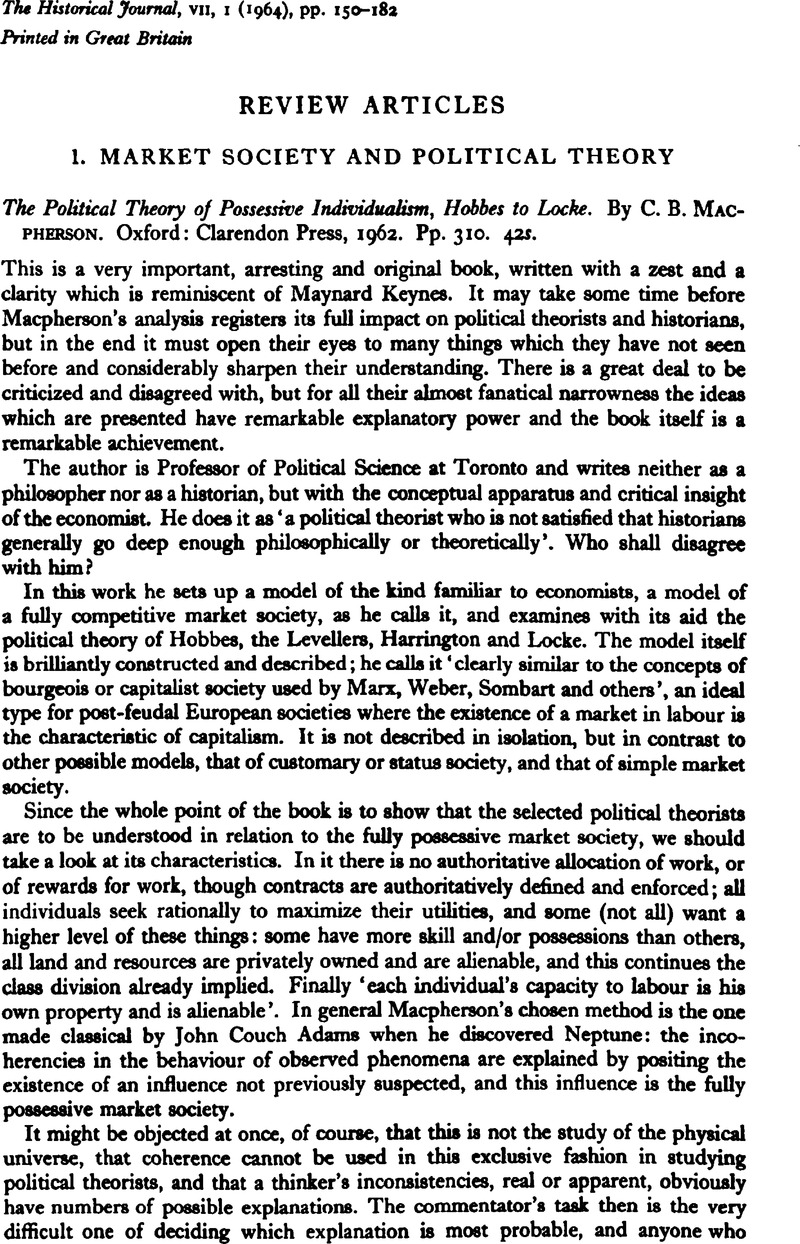Published online by Cambridge University Press: 25 March 2010

1 The distinction between servants and labourers, cottagers and others is crucial to the analysis of Stuart social structure, and work on this important point is at present in progress in Cambridge. Only one of the contexts cited by Macpherson is registered by us as an example of the rare extended use of the word servant (the important point is marriage), and all the others I have checked so obviously make against him that I am puzzled by the confidence of his assertions.
2 Gilbert Gilchrist, now of the University of the South, Sewanee, Tenn., found in the British Museum some yean ago a manuscript version of an early part of Oceana (containing some, at least, of the statements in question) which may have been written well before the book appeared in 1656, indeed before the Commonwealth began. Where the printed book has ‘the late Monarchy of Oceana’, the manuscript has simply ‘this monarchy’. It is to be hoped that Prof. Gilchrist will publish the full facts at some early date.
3 See my edition of Locke's, Two Tnatuet of Government (Cambridge, 1960), especially footnotes to pp. 104–5Google Scholar, commenting on articles published by Prof. Macpherson before 1958.
4 But compare para. 85, where Locke insists that the master'servant relationship is contractual, even then however talking of service rather than labour, and service certainly carried the implications which we have described. In para. 28 Locke is far from being specific, for the labour owned is not the servant's alone, but the master's (the last mentioned) and his horses'. Will Macpherson maintain that a horse can alienate his labour to his master? The whole alienation argument (‘Locke has separated life and labour’) with all its implications for our own day, is very insecurely based on this passage and on those cited to buttress it from Locke's other works. It still seems to me, if hairs must be split, that Locke may have intended to distinguish labour as the propensity to work, inalienable, and the product of labouring over a specific period, which could be bargained for: certainly the connotation of the word ‘labourer’ in Stuart society bears this out. Dr Martin Seliger of the University of Jerusalem, and Mr Gordon Shochet of Cambridge are at present at work on the patriarchal element in Locke and the others, an element which Macpherson seems unable to allow for.